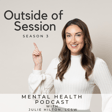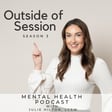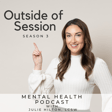
Launching Forward: Emerging into Adulthood Part 1
In this week’s episode, we tackle the common yet often misunderstood experience of (what was formerly known as) “Failure to Launch.” Join Julie for a compassionate conversation with Dr. Sean Hirt, as we explore the challenges individuals and their families face when navigating this life transition, be it in career, relationships, or personal development. Whether you are personally experiencing a 'failure to launch' moment or seeking a better understanding for someone in your life who is, you won’t want to miss this episode.
About this week's guest:
Dr. Sean Hirt is a Licensed Psychologist & Practice Founder of Hirt Psychology. He has an array of clinical experience in a variety of settings including private practice, residential treatment centers, non-public schools, and emergency shelters. He is particularly sought out for his expertise in treating and addressing anxiety, depression, poor self-esteem, behavioral issues, and autism spectrum disorder in children and adolescents. Other areas of focus include substance abuse, life-transition issues & trauma-related disorders.
Get in touch:
https://www.hirtpsychology.com/sean-hirt




